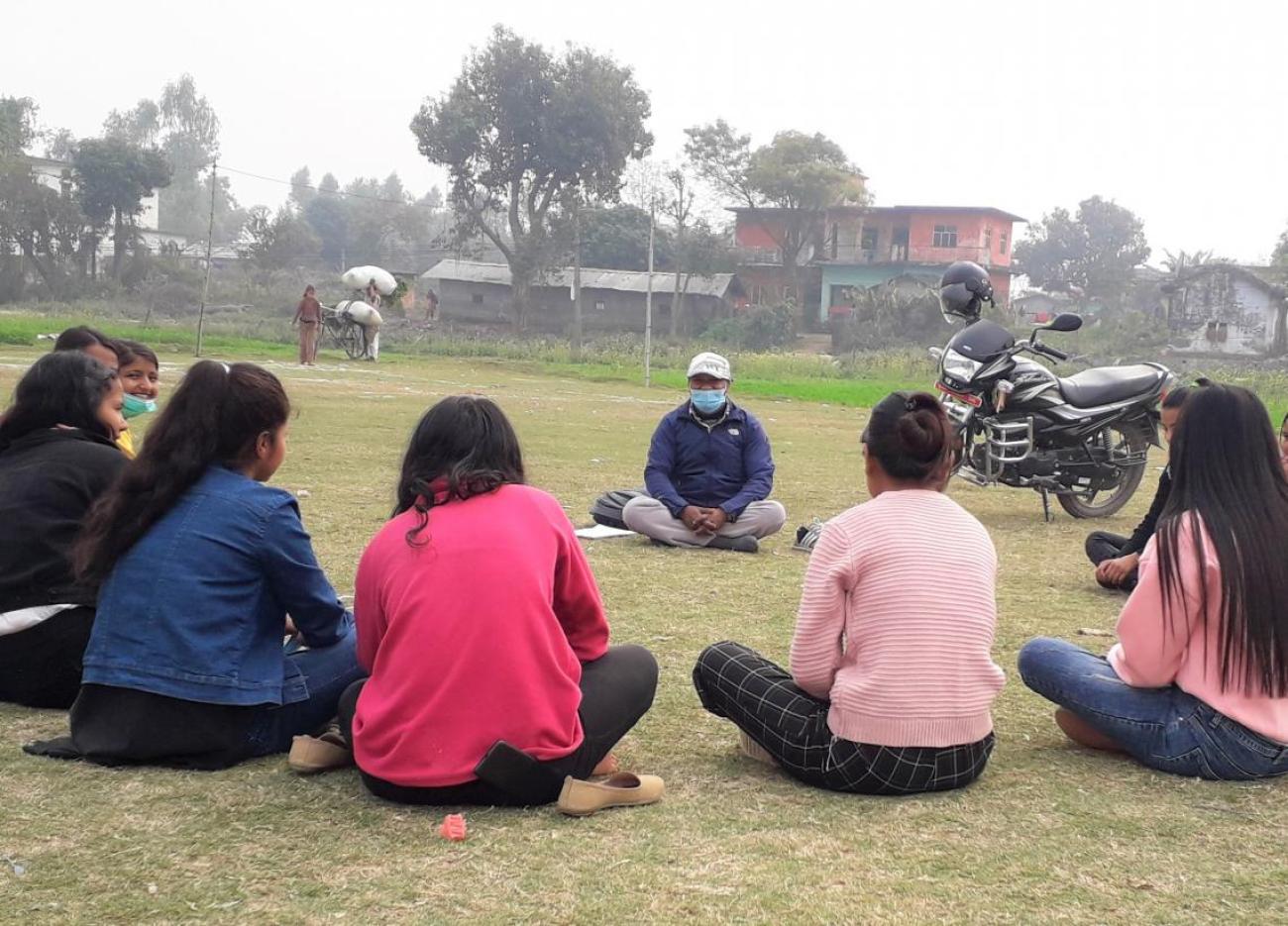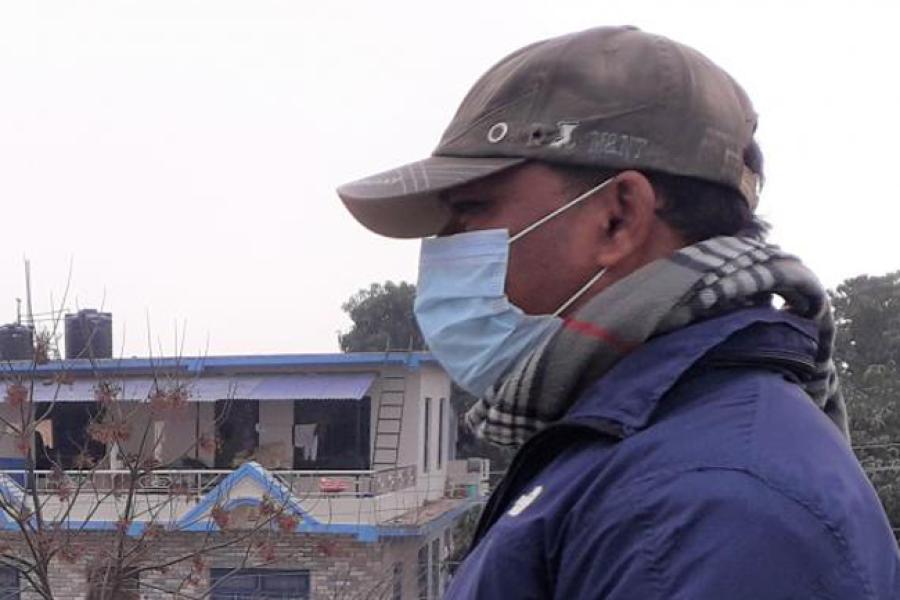It’s about building trust and confidence

In Nepal’s far west, mental health and psychosocial support interventions backed by UNICEF are helping to bring children out of the shadow of the COVID-19.
Kailali, Nepal: The first time psychological counsellor Laxman BK came across 13-year-old Dil Maya*, he sensed she needed help.
Laxman had been facilitating an orientation session on mental health and psychosocial support, particularly in relation to the COVID-19 pandemic, for students in grades seven through 10 at a school in the Dhangadhi Sub-Metropolitan City in Kailali District in far-western Nepal. At which point seventh-grader Dil Maya – one of the students at the session – had opened up about her emotional struggles.
“She said she was feeling a great deal of fear and worries linked to the pandemic,” says Laxman. “She was deeply afraid of being infected by the virus, transmitting it to her family and others, and how the community would treat her and her loved ones if they got sick.”
Laxman recalls that the young girl had been on the verge of tears while speaking. “I could see she was very affected,” he says.
This, according to Laxman, is one of the many unfortunate fall-outs of COVID-19, where prolonged lockdowns, restrictions in mobility and closure of schools have led to a rise in anxiety, stress, isolation, depression, and even suicide among young people.
“This disease has touched each and every person in some way or the other, and it has brought enormous social, emotional and mental health challenges for children,” he says.
It was with this situation in mind that counsellors like Laxman from different parts of the country have been trained and mobilized under the child and adolescent mental health (CAMH) programme, run by the Kanti Children’s Hospital and CWIN Nepal with UNICEF support. The programme has conducted over 2,200 mental health sessions in 2020 for a variety of groups, including teachers, school nurses, frontline healthworkers and caregivers of children, and has succeeded in reaching around 42,000 children across Nepal.
Following the orientation session, Laxman decided to reach out to the principal to discuss whether it would be possible to provide Dil Maya with individual counselling. Under the school’s facilitation, Laxman then held several conversations with Dil Maya, initially in the presence of two of her peers, followed by one-on-one sessions once she felt comfortable talking to the counsellor on her own.
Laxman, who has conducted similar orientations and counselling sessions in various other schools in Kailali, explains that the counselling process, especially in the case of children and adolescents requires time and patience – “it’s about building trust and confidence.” Which was why, only after initial conversations that covered her family life, school life and friends, did the counsellor finally broach the topic of COVID-19, and the difficulties she had revealed early on.
Over the next few sessions, Laxman and Dil Maya discussed the negative thoughts that had been causing her so much anxiety, breaking down the reasons behind her fears over the coronavirus and countering these with facts – such as the actual nature of the disease, safety measures that one can follow, as well vast numbers of people who have recovered from the disease. Laxman also provided her tips on self care and managing stress, and encouraged her to open up more to friends and family.
The conversations brought about a noticeable change in Dil Maya, Laxman says. “The more information she took in about COVID-19, the more she began to realize that there were some things she could do to stay safe, and that getting infected didn’t mean you would instantly lose your life,” he explains. “And the idea of reaching out to her support circle – friends, family and teachers – was also something that really resonated with her.”

Indeed, Dil Maya was starting to see that keeping things bottled up was not a good idea and that sharing her feelings was a healthier option. In follow up calls, the young girl has reported feeling much stronger emotionally, and finding ways to keep her body and mind occupied, such as through reading, listening to music and meditating on the weekends.
“Although I recommended that she pursue further counselling, for which I suggested contacting specialists near here or in Kanti Children Hospital through available online means, I’m happy that she’s changed so much in the short time we’ve had with her,” Laxman says.
*name changed


